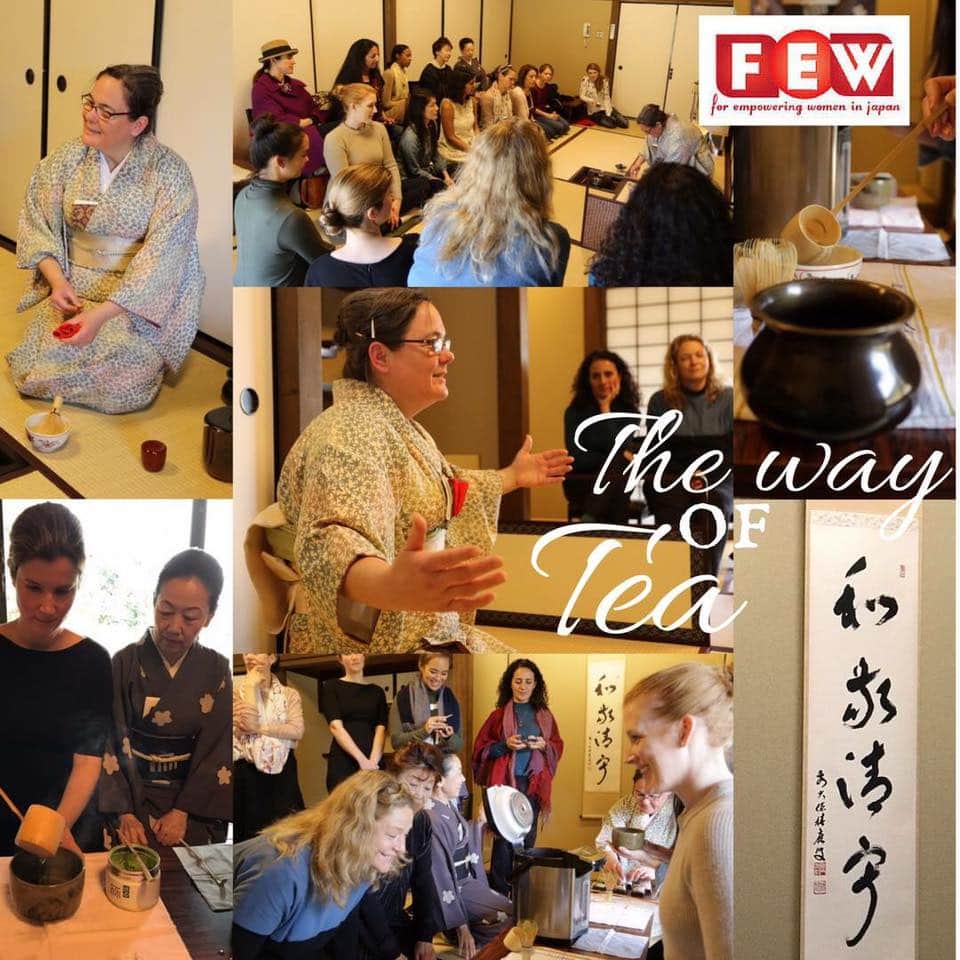The Way of Tea Recap – An Introduction to Japanese Tea Ceremonies with Ruth (Sōshin) Lionberger

By Tanja Kinnen, FEW Special Events Director
The Way of Tea and the chance to gain deeper insights into this mysterious Japanese tradition brought 15 curious women to attend our special event on a sunny Monday afternoon. The national holiday seemed like the perfect opportunity to get to know more about the Japanese Tea Ceremony.
Ruth (Sōshin) Lionberger not only presented a brief introduction on the history of the Japanese tradition of serving tea, but also shared precious life lessons behind the ceremony.
From the moment you walk through the traditional gardens to respectfully crawling through the door of a traditional tea house, every step of the ceremony has been carefully planned to separate you from the outer world and guide you into the inner; as well as take you back to a time of childhood innocence and humility, when the purest of human interactions take place. That’s the original concept of the tea ceremony, which was founded when hierarchies were even more important in Japanese society than they are today.
Indeed, every component of the ceremony is designed around the principles of zen. As the wooden door closes, we leave the outside, temporal world and enter the tea room, empty of all things to bring into focus every detail of the ceremony, from the handling of the instruments to the serving of the wagashi (sweets) and the preparation of the tea.
“There is a man who is so poor that he eats wood and wears clothes made of grass. But his heart is clear like the moon and his mind is calm and nothing disturbs him. If someone asks him, “Where do you live?” he replies, “In the green mountains by the pure water.” – T’ang Dynasty Chinese Priest
Ruth gave us a unique and unconventional opportunity to learn about tea in all its different facets through dialogue and understanding the meaning behind the ceremony. True to her goal of bringing back the origins of the tea ceremony, Ruth was not so much focused on the gestures and manners, but rather on giving us an opportunity to leave behind our busy lives and the world outside, and practice inner contemplation and the four guiding principles: Harmony, Respect, Purity, and Tranquility.
For more information on Ruth’s tea classes in Japan: ruthfulness@gmail.com or visit her Facebook Page: Tea For The Ages at https://www.facebook.com/Teafortheages/.
